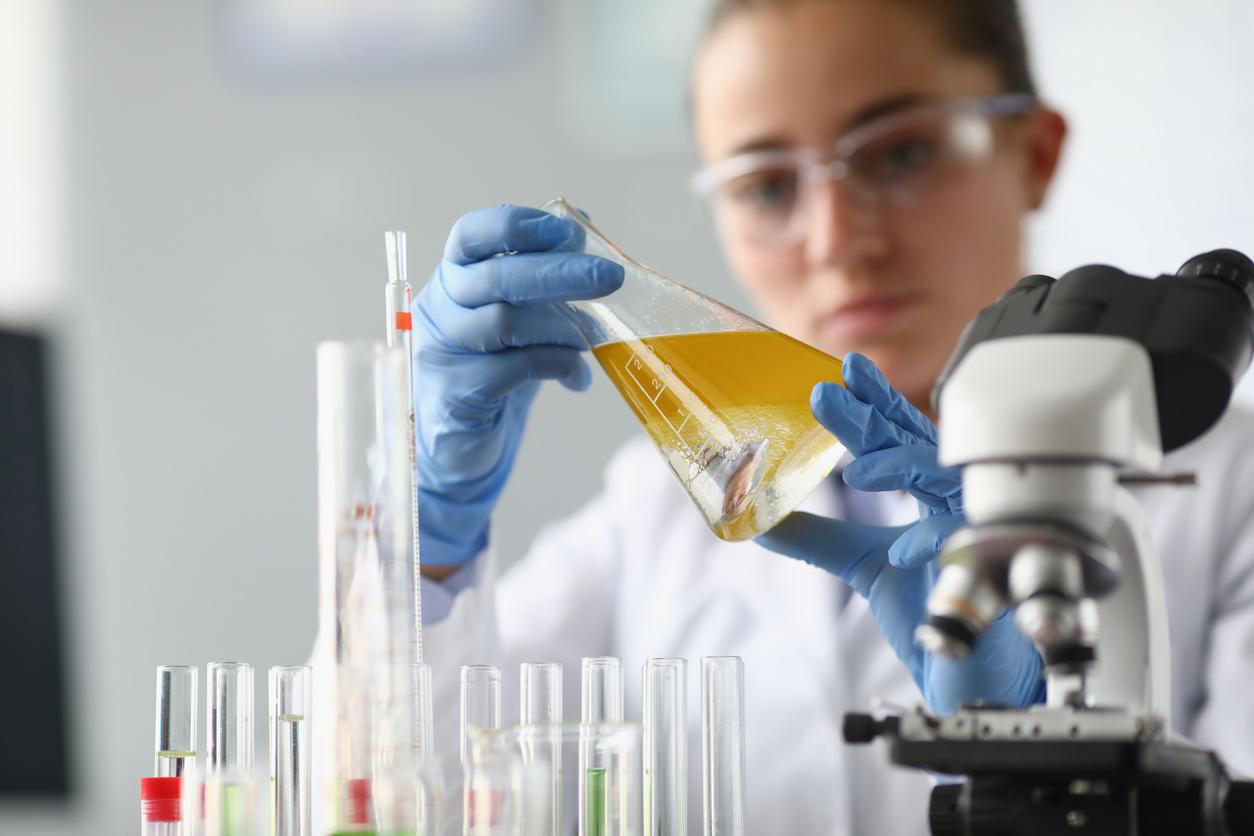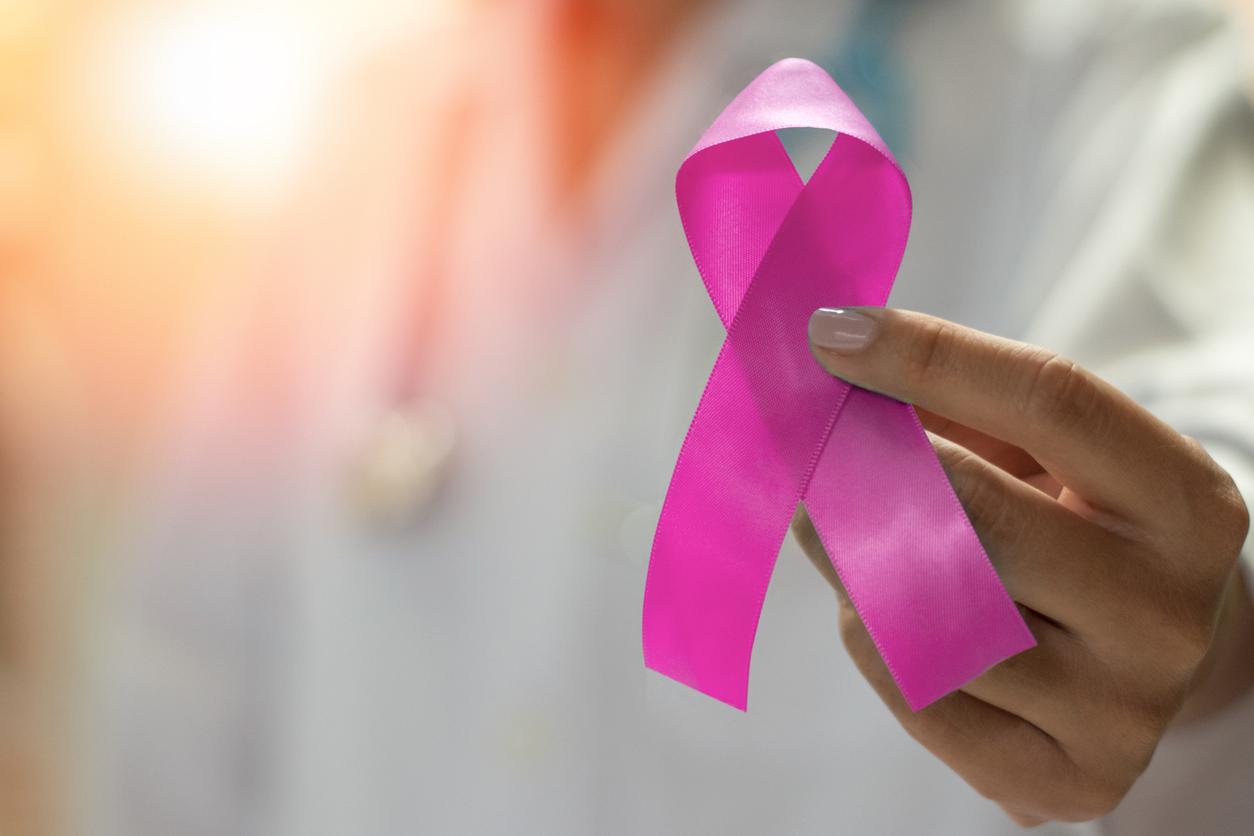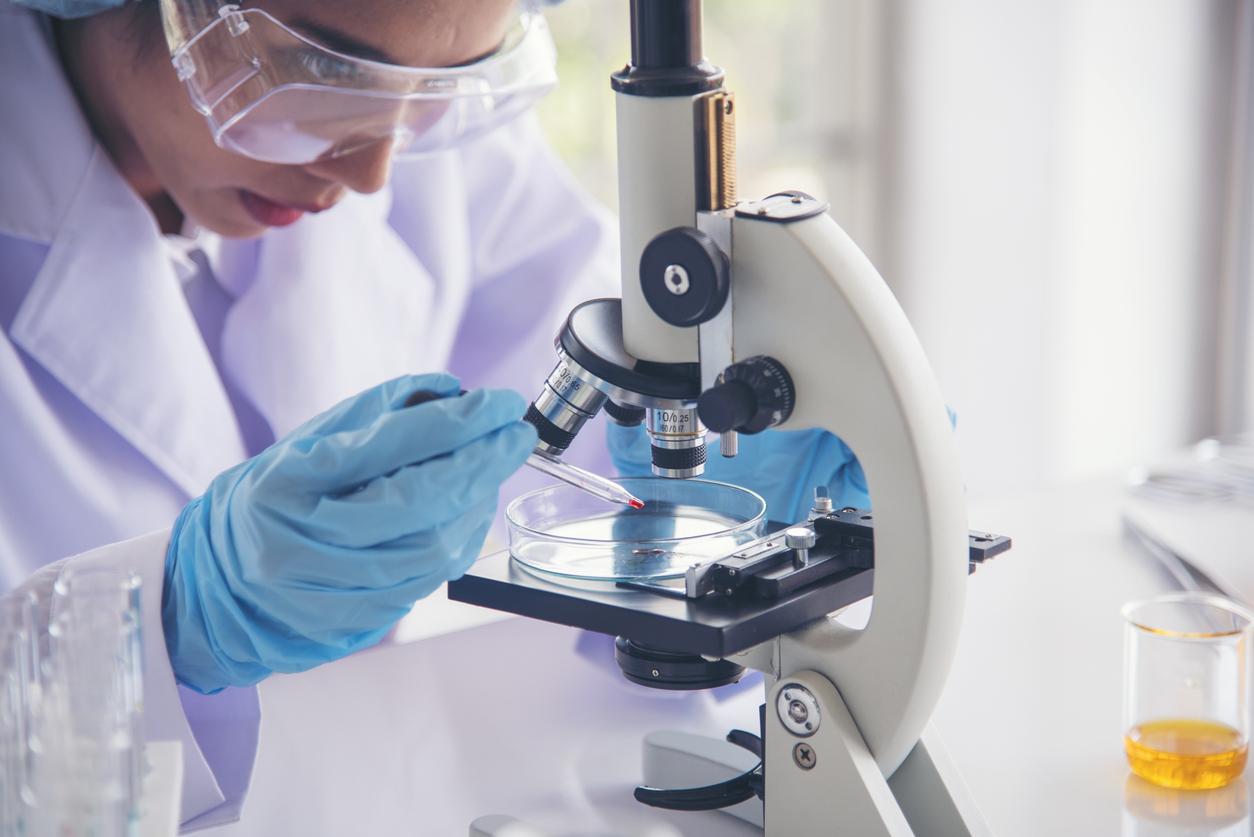Researchers have found a new way to tackle BRCA1 gene mutations, the cause of many breast cancers around the world.

In 2013, American actress Angelina Jolie made headlines announcing that she had a preventative double mastectomy due to her genetic risk of breast cancer. Now researchers have discovered a new way to kill such cancers, caused by a mutation in the BRCA1 gene. The results of their study were published on Tuesday August 27 in the journal Proceedings of the National Academy of Sciences.
Normally, a tiny molecule called microRNA (miR) 223-3p prevents normal cells from making mistakes by repairing their DNA. But in cancers with BRCA1 mutations, the gene suppresses the action of miR223-3p, which allows cells to divide. Thus, adding miR223-3p would force BRCA1 mutant cancer cells to die, explain the researchers of UT Health in San Antonio, Texas (USA) who conducted the study.
“A new treatment for inherited breast and ovarian cancers”
MiR223-3p acts as a switch, turning off proteins that BRCA1 mutant cancers need to divide properly. Without these key cell division proteins, BRCA1 mutant tumors commit suicide, says Dr. Hromas, who participated in the study.
“That’s a pretty cool way to think about a treatment. We’re using the very nature of these BRCA1-deficient cancer cells against them. We’re attacking the very mechanism by which they turned into cancer,” he enthuses. he. What’s more, restoring miR223-3p before cells turn into cancer could even prevent diseases linked to BRCA1 genes, he says.
“This represents a new treatment for inherited breast and ovarian cancers, which are very common in our region,” the researchers conclude.
21 women carrying the BRCA1 or BRCA2 mutation in France
Indeed, in the United States, BRCA gene mutations affect 1 in 400 patients, or about 825,000 people. After Ashkenazi Jews, Hispanics have the second highest prevalence of BRCA1 disease-causing mutations. Since the Hispanic population is very present in South Texas, this region is therefore strongly impacted by this burden.
In France, breast cancer is the most common cancer in women (nearly 54,000 new diagnoses made in 2015). About 5-10% of these cases are genetic in origin. Between 2003 and 2004, nearly 21,000 people were identified as carriers of the BRCA1 or BRCA2 mutation in the country. These women therefore have a “higher risk of developing a first breast cancer, especially at an early age, but also a second breast cancer (contralateral or second homolateral event)”, explains the Inca.
According to health authorities, the widely publicized intervention of Angelina Jolie in 2013 would however have greatly sensitized women on the subject. “At the University Hospital of South Manchester Breast Cancer Prevention Centre, UK, we have seen a marked increase in the number of women undergoing preventative double mastectomy, starting 9 months after the revelation by Angelina Jolie, had notably testified Gareth Evansprofessor of clinical genetics, in a 2015 commentary published in the journal Breast Cancer Research. In France too, the testimony of the actress had an impact, generating a large increase in requests for genetic consultations.

.

















